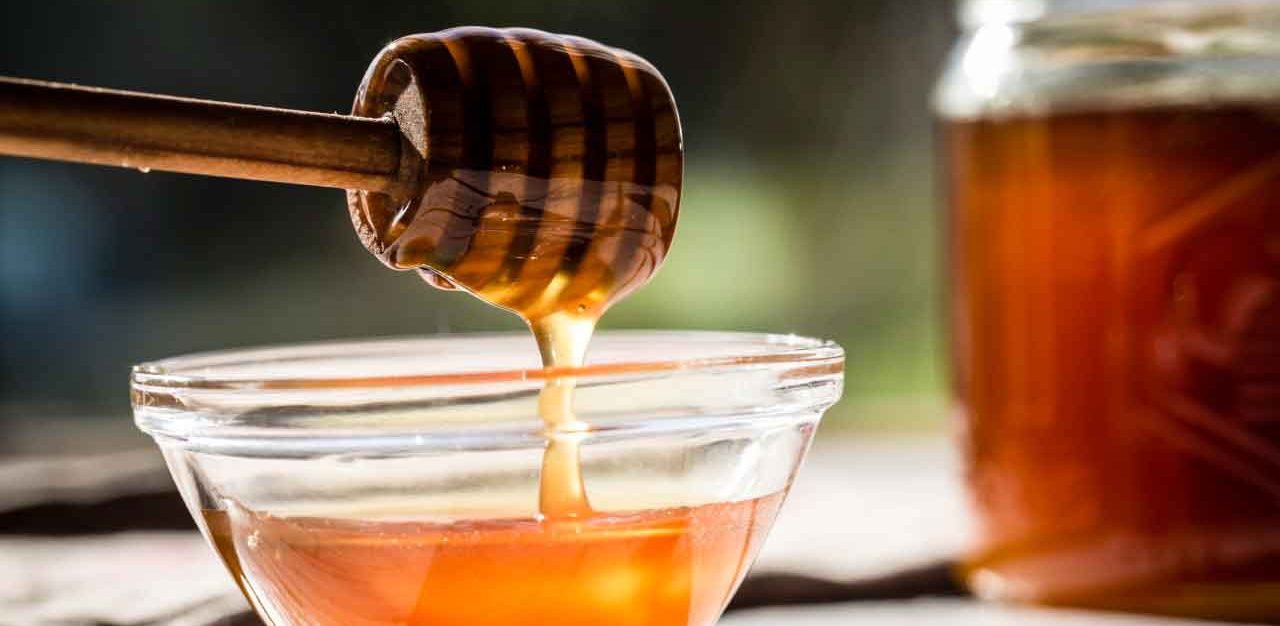The Health Benefits of Honey

What are the health benefits of honey? Medicine rediscovers an age-old therapy, especially for wound care.
Even in the most advanced sciences, sometimes what’s old is new again.
Noted by the ancient Greeks, Indians, and Chinese for its healing properties, honey shows promise in a surprising application: wound care.
Diabetic foot ulcers are chronic wounds that result from poor circulation and the decreased ability to fight off infection common in people with diabetes. Amputation is a frequent outcome. In one startling case of the possible health benefits of honey, a 79-year-old diabetic with foot ulcers man refused to consider amputating — but, told he could die if he did not, agreed to an experimental method. At the recommendation of his doctor, Jennifer Eddy, his family purchased pasteurized supermarket honey and began applying daily dressings with it. After two weeks, healthy tissue began to grow around the ulcers. Within six months, they were dramatically transformed. After a year, they had healed completely.
YOU MIGHT ALSO LIKE: Tell Your Doctor about Alternative Treatments
Honey has a number of healing properties, explains Eddy. Honey’s antibacterial abilities rid wounds of existing infection, while fostering healing by stimulating the immune system. It also naturally cleans wounds (what doctors call debridement), promotes tissue healing, and minimizes scarring.
One high-powered honey, made from the Manuka tree, seems to have especially strong antibacterial effects. In a case published in early 2016, Manuka honey helped heal a recurring infection one woman suffered after bariatric surgery. Its power seems to come from a compound called methylglyoxal, which can be present in Manuka honey at levels 100 times higher than honey from other flowers.
What’s more, the health benefits of honey seem to apply to “superbugs” such as methicillin-resistant Staphylococcus aureus, or MRSA, which can be contracted in hospitals and develop in hard-to-treat wounds like diabetic ulcers. Studies suggest Manuka honey successfully eliminates MRSA.
Health benefits of honey for the body
Clinical trials are ongoing. In 2015, one found honey healed more patients with diabetic foot ulcers (76 percent of 179 participants) at four months than conventional saline dressing (57 percent of 169). A 2015 review noted that 35 randomized controlled trials with a total of more than 3,600 participants have now been published on the use of honey in wound care, along with many smaller trials and case studies. The authors concluded sufficient evidence supports the use of honey — and Manuka honey specifically — in wound care.
YOU MIGHT ALSO LIKE: Tea Can Be Good For You
There are concerns that the medical use of honey can be complicated by the type of flower it comes from, and published trials have compared various types of honey and other bee products. Yet powerful reports continue to appear. In a case published in May 2015, another diabetic man with deep open scalp wounds after surgery was treated with Medihoney, a standardized medical Manuka honey. He too experienced a dramatic recovery, with wounds healing completely within seven months.
Nutritional health benefits of honey
Unfortunately — sweet as the idea may be — honey’s benefits do not necessarily extend to ingestion. Honey has the same effect on the body as sucrose (table sugar) and high-fructose corn syrup, increasing inflammatory markers both for people who are sensitive to sugar, like diabetics, and those who aren’t.
Yet there are some reasons to choose honey over sugar. Raw honey, a prebiotic, supports “good” bacteria in the digestive system, and consuming it with other antioxidants may have a synergistic effect, increasing the protective benefits of each. Some types of honey may even have a protective effect on the liver.
Honey can also be helpful for getting to sleep with a cold or cough. One review found it to be as effective as dextromethorphan and more effective than diphenhydramine, two common cold medicines, for children — with one important caution. Though honey has antibacterial properties, it can still harbor bacteria that reproduce via spores, including the toxin that causes botulism. That’s why honey should never be given to infants under a year old: though adults’ digestive systems easily defeat these spores, infants’ developing immune systems are not yet strong enough.
Honey has been rated safe for children older than one year by the Food and Drug Administration, the American Academy of Pediatrics, and Canada’s College of Family Physicians — if your child is coughing, try a half-teaspoon to a teaspoon in milk before bed.
YOU MIGHT ALSO LIKE: 8 Breakfasts to Improve Your Energy and Mood
Updated:
March 31, 2020
Reviewed By:
Janet O’Dell, RN